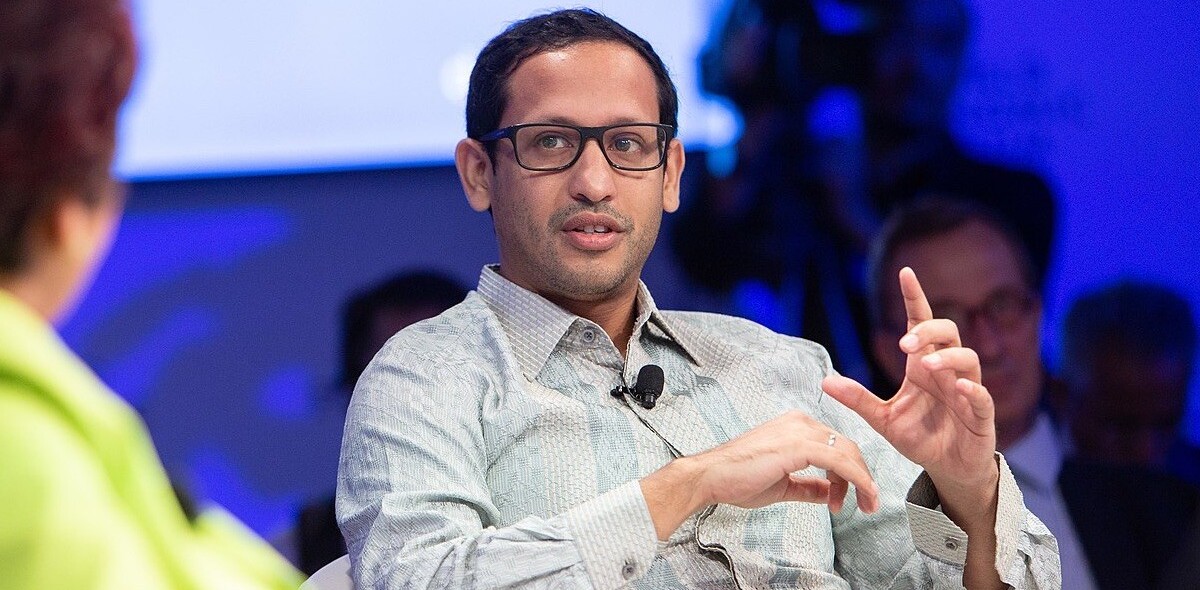
We previously told you that AcceleratorHK is currently taking applications for its new accelerator program for companies developing for multiple mobile platforms. With 20 startups already vying for a spot, we thought we’d check in with founders Paul Orlando and Steve Forte.
Orlando is also the founder of Hong Kong’s only startup bootcamp, while Forte is the Chief Strategy Officer at Telerik, which is sponsoring the program.
If you’re still interested in applying, you’ve got until October 1st to get your submission in. The three-month program, which is built for “early stage startups who believe that the future of mobile is in cross-platform, non-native apps”, comes with US$15,000 in funding in exchange for between 5 to 8 percent equity.
TNW: How did you guys meet? What was the process behind starting the accelerator?
PO: Steve Forte was one of the people I met when I visited Hong Kong early this year. I actually found him from a list of judges at Startup Weekend, where I had recently mentored in New York. We spoke a lot about what was needed in the growth of Hong Kong into a more active tech startup location. A lot of those talks went into what became the Startup Bootcamp which taught a lot about running a program in Hong Kong. Now, along with Telerik’s sponsorship, we’re starting Hong Kong’s first accelerator program: AcceleratorHK.
TNW: What’s Telerik’s involvement going to look like? In what ways do you think its tools can help startups?
SF: Telerik is our financial backer as well as providing some free tools. They have given us complete autonomy to run the program. Their motivation is to further the use of HTML5 and shine a spotlight on awesome apps built with hybrid development. Since Telerik has some great tools in this space, they make a logical partner. Telerik’s tools can surely help startups get to market faster by doing hybrid development. The tools also lower the development costs by making the developers more productive.
TNW: How would you describe the startup scene in Hong Kong right now?
PO: Hong Kong’s startup scene is small but growing and includes local entrepreneurs and those who have come here from abroad. In general, there is a tight grassroots community that is helpful to each other and it is easy to get introduced around, just as I did when I visited early this year. We think that Hong Kong is in the right place to achieve a lot more.
The investment community here is not as active in technology, which means that Hong Kong startups do well to think early on about building sustainable businesses (something I advocate anywhere). While I think the investment climate has to eventually change, the discipline of building with a business model in mind is overall a positive attribute.
TNW: Why do a “hybrid” mobile accelerator?
SF: Over the past year I have been a mentor at an accelerator called Haxlr8r. Haxlr8r, based just north of us in Shenzhen, China, is a unique accelerator since it is the only accelerator to focus exclusively on hardware startups. The targeted hyper-focus of the cohort paid dividends as everyone is in the same space and learned from each other and shared their experiences. That got us thinking, why not do the same for software!?!? Y-combinator and other accelerator cohorts seem to be all over the map, which is fine, but I think lack the synergies I witnessed up in Shenzhen. Gartner predicts that 80% of all apps will be hybrid by 2015 and startups in particular are focusing on hybrid development since hybrid development allows them to get to market faster with a larger reach. An accelerator focusing just on hybrid mobile development just made sense. Doing it in Hong Kong also made a lot of sense since this town is mobile crazy (2 mobile subscriptions per resident!).
TNW: Any specific mentors that you want to highlight?
We have a wide range of mentors both locally in Hong Kong and abroad who will provide mentorship in person and electronically via email, Skype, and organized Webcasts. Some mentors are investors who can help the companies prepare for a capital raise after graduation, some are experts in social media, some in mobile, and some are just guys who have went through an amazing pivot or other unique startup experience.
TNW: Any tips for aspiring startups that are interested in applying?
Have a team with both tech and business skill sets, show that you’re coachable, show that you’ve learned about your market or at least thought about what steps you would take to do so. Be excited about the program and being open to others in the program. Demonstrate that you are serious and that this is going to be your number one priority for the duration of the program and beyond.
TNW: Will there be any overlap with startup bootcamp? Can startups apply (and be accepted) to both?
The Startup Bootcamp that Paul runs is open to startups in multiple sectors, but AcceleratorHK is focused on Hybrid Mobile only.
SF: While the two programs have some similarities, there is no overlap since the models are very different. The bootcamp tends to focus on educating the cohort on the process of a doing a startup and validate their idea, while working towards a demo day at the end. The cohort pays for the time they spend in the bootcamp and what they get out of it is dependent on what they put in. The accelerator on the other hand is free to the cohort and the accelerator takes an equity stake in the company via a cash investment, changing the dynamics significantly. This is your full time job, you are doing this startup at full speed and are eyeing a beta launch or full launch at the end of the program. The goal is customers and revenue, not a demo day. (But there will be a demo day of course!) If you are slacking, you’ll get kicked out and have some angry investors. We’re not allowing anyone to go through both programs, however, anyone who has done a previous bootcamp is a great candidate for the accelerator.
TNW: Can you talk about some of your experiences that have prepared you two to run this accelerator?
PO: Over the last year I worked with about 50 startup founders teaching customer development / lean methodology via a course I developed in New York. I got into running that course based on what I saw needed in New York — a city that had enormous growth in its local startup community in the last few years. So, I had learned that I liked to work with founders on their businesses and wanted to do more of that. I also had the experience of running a telecom startup for two years, during which I had to get the team together, get product out the door and iterate our way to revenue. Previously I also spent five years working in Asia in telecom. These experiences fed directly into doing first the Startup Bootcamp and now AcceleratorHK.
SF: I have been working at startups my entire adult life. I don’t know how to do anything else. I’ve been part of four different startups, some have taken venture capital, some have not, some have been acquired and some went the IPO route. Having also been through the rise and fall of the dotcom boom as well as the mini “Web 2.0” boom from 2002-2007, I think I am well aware of the patterns that make startups successful or not. As a speaker at many conferences around the world, it is my nature to share my experiences, I can’t wait to do so in this more formal setting.
TNW: Any other thoughts or comments?
Apply today, after only a week we already have close to 20 applicants!
Image credit: Mike Clarke / AFP / Getty Images
Get the TNW newsletter
Get the most important tech news in your inbox each week.




